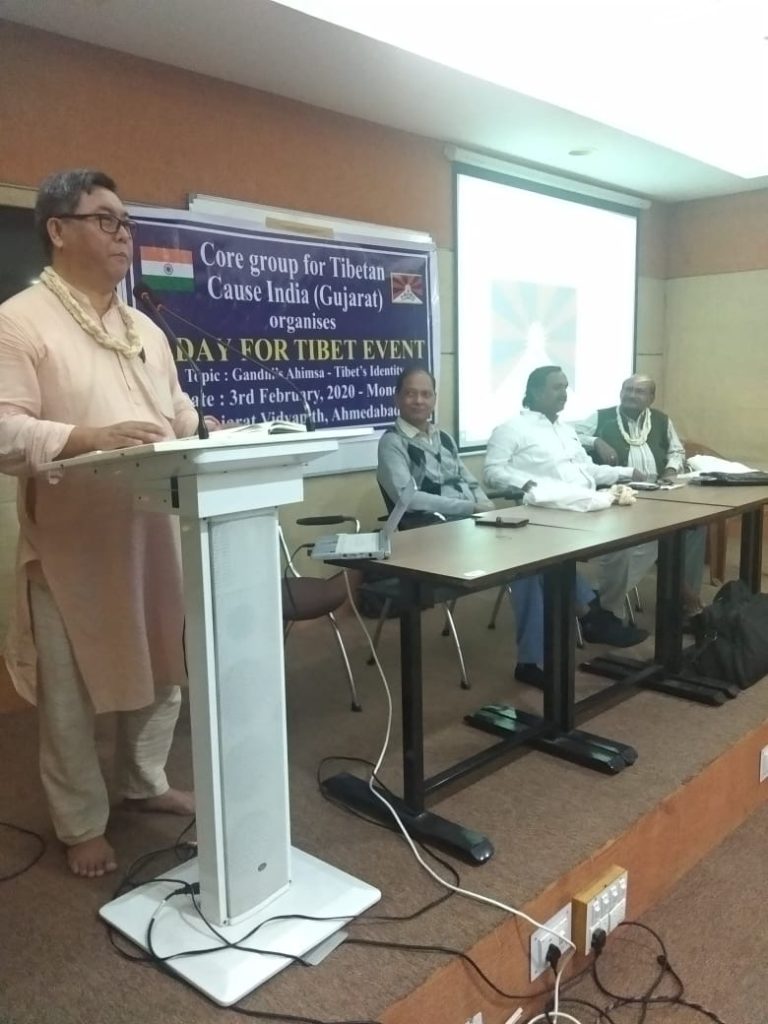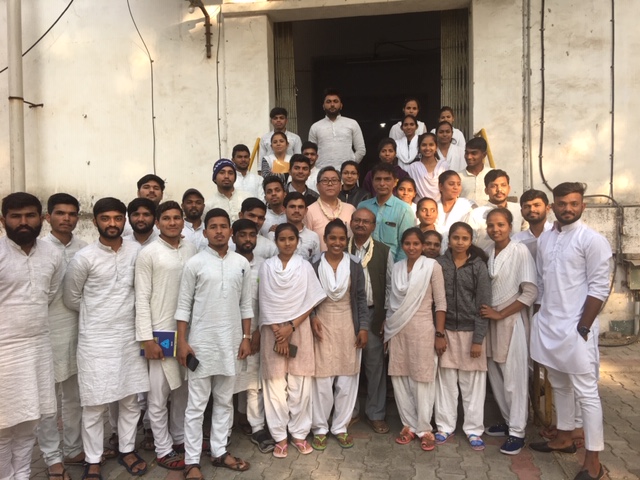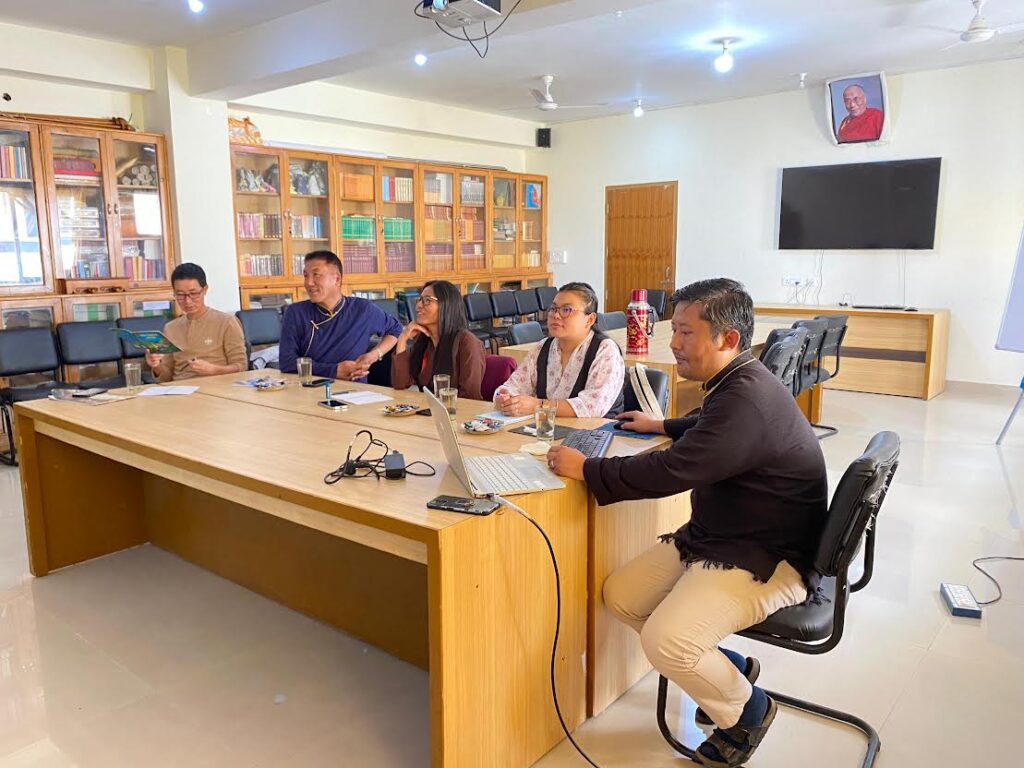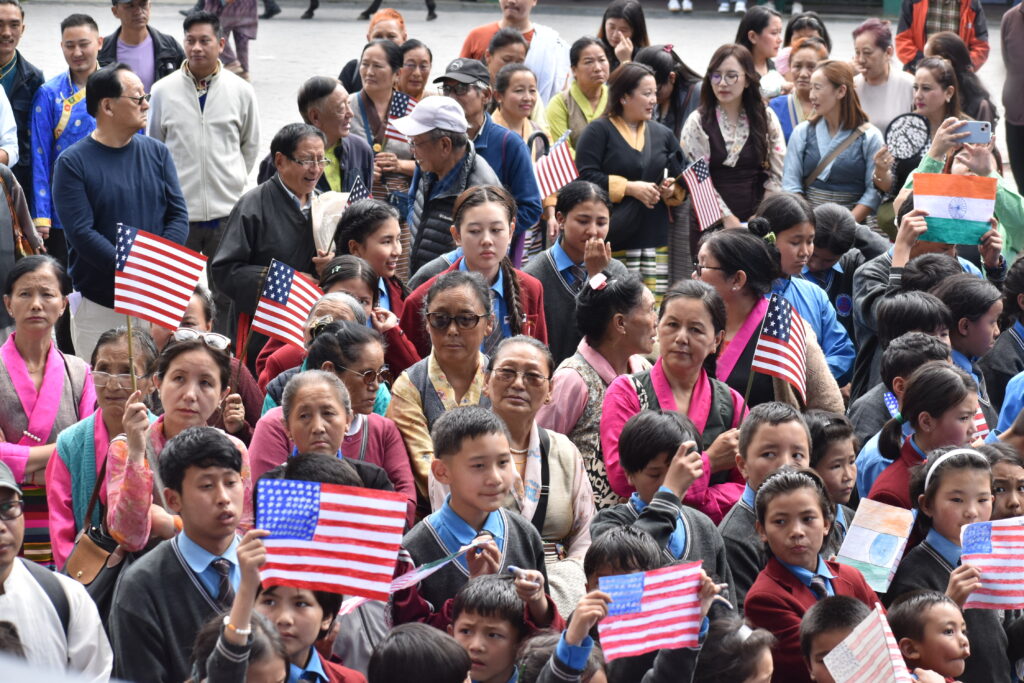
Mr. Jigmey Tsultrim speaking during the program.
Ahmedabad: What could be of more relevance than to know about Tibet’s identity with Gandhi’s Ahimsa? If India could have achieved its independence after 200 years of British colonization following the path of passive resistance on the principles of non-violence and Ahimsa advocated by Mahatma Gandhi. This resemblance is equally significant in the discourse of Tibbat Mukti Sadhana which adopts the core values of Gandhi’s Ahimsa.
Finding this significance, suitably among the faculty members and students of sociology at M D Desai College of Gujarat Vidyapeeth, ‘A Day for Tibet’ program was organised under the banner of Core Group for Tibetan Cause – India, Western Region.
In his welcome and introductory remarks, Sh. Mahendra Sangpal underlined the thrust of Gandhi’s values which are practically adopted in the restoration of the Tibetan spirit of freedom and coexistence. He emphasised to the students to do further research upon the historical relations of India and Tibet and the experiences of its trust deficit with China.
Shri Ram Kishore Pasari, Rashtriya Mahamantri of BTSM recalled India’s experiences with the Chinese approach of expansionism and communism. He asserted that while political and historical science could be of the academic discourse of any institution, learning about one’s own political and social challenges of the past, present, and future is significant.
“India’s rich cultural heritage which the Indians failed to preserve has been preserved by Tibetans which every Indian youth must realize,” he said while raising some key concerns.
While thanking this opportunity of having the event at Gujarat Vidyapeeth where His Holiness the Dalia Lama had visited in 1989 and 2008 respectively, whose former Vice-Chancellor, Prof. Narayanbhai Desai taught Gandhi Katha in 2009 to the staffs of CTA at Dharamshala, Coordinator for ITCO put forward the elementary facts that establish Tibet being sovereign and independent state. He also stated that while Tibbat Mukti Sadhana is confined with Gandhi’s thought of Ahimsa, the approach of the Central Tibetan Administration is the Middle Way Policy seeking for Genuine Autonomy.
He presented the travel document of Tsipon Shakapba that has seals of entry permits and visas which states a lot about the geopolitical existence of Tibetan identity in the past differed from what is coloured today by the People’s Republic of China.
The event was attended by students from the Faculty of Sociology and Journalism headed by Dr. Gridharbhai Patel. Members of the Tibetan Sweater Seller Association, Ahmedabad also attended the event.
-Filed by ITCO, New Delhi

Students listening to speakers during the program.

TCO Coordinator with Dr Kamlesh Kapadia and students outside the seminar hall.





